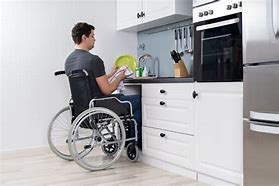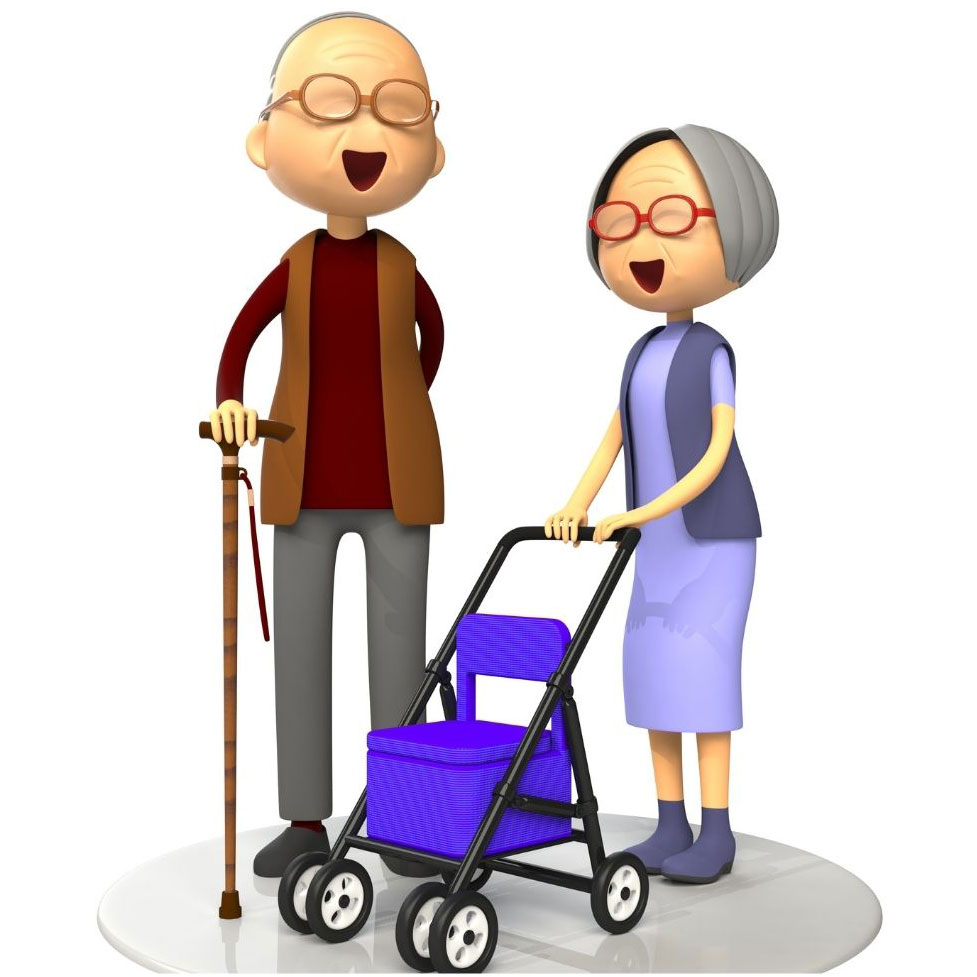How Can I Help My Elderly Parent To Stay At Home?
As the sun sets, casting a golden hue on life’s horizon, one question often lingers on our minds: How can I help my elderly parent to stay at home? The desire for independence, the comfort of familiar surroundings, and the memories etched in every corner make ‘home’ a sanctuary for our aging loved ones. With my passion deeply rooted in promoting elderly independence, I’ve endeavored to address this pressing concern. Drawing from personal experience and professional guidance, this article aims to provide you with actionable steps to ensure your elderly parents continue to flourish within the confines of their beloved home.
In this section, we will discuss the importance of helping your elderly parent stay at home and the benefits it can bring to their overall well-being. Aging in place, or remaining in one’s own home as they age, is a desire shared by many seniors. It allows them to maintain their independence, familiar surroundings, and connections to their community.
As a caregiver, it is important to understand the significance of aging in place for your elderly parent. Moving to a care facility can be a major life transition that may cause stress, anxiety, and a sense of loss for your loved one. By helping them stay at home, you can provide them with a sense of comfort, security, and continuity.
Additionally, aging in place can have positive effects on your parent’s physical and mental health. Being in a familiar environment can reduce the risk of accidents and falls, as they are already accustomed to their surroundings. It also allows them to maintain their daily routines, which can contribute to a sense of purpose and well-being.
By assisting your elderly parent in staying at home, you are not only supporting their desire for independence but also promoting their overall quality of life. In the following sections, we will explore various strategies and resources that can help you achieve this goal.
How Can I Help My Elderly Parent To Stay At Home: Understanding the Importance of Aging in Place

Aging in place refers to the concept of allowing elderly individuals to remain in their own homes and communities as they age, rather than moving to a care facility. This approach is becoming increasingly popular as it offers numerous benefits for both the elderly and their families.
One of the main advantages of aging in place is that it allows elderly individuals to maintain their independence and autonomy. Being able to stay in familiar surroundings, surrounded by cherished belongings and memories, can greatly contribute to their overall well-being and quality of life.
Additionally, aging in place can help promote a sense of belonging and connection to the community. Elderly individuals often have established social networks and support systems in their neighborhoods, which can provide them with emotional support and companionship. This can help combat feelings of loneliness and isolation, which are common among the elderly.
Furthermore, aging in place can also be more cost-effective compared to moving to a care facility. The expenses associated with assisted living or nursing homes can be significant, and by staying at home, elderly individuals can potentially save a considerable amount of money.
However, it is important to note that aging in place may not be suitable for everyone. The decision should be based on a thorough assessment of the elderly parent’s needs, abilities, and safety considerations. It is crucial to ensure that appropriate support systems and resources are in place to address any potential challenges that may arise.
Overall, understanding the importance of aging in place is the first step in helping your elderly parent stay at home. By recognizing the benefits and considering the individual needs of your parent, you can make informed decisions and provide the necessary support to ensure their well-being and independence.
Assessing the Needs and Abilities of Your Elderly Parent

When it comes to helping your elderly parent stay at home, it is crucial to first assess their needs and abilities. This step is essential in determining the level of support and assistance they require to maintain their independence and safety.
Start by having an open and honest conversation with your parent about their current physical and mental health. Discuss any challenges they may be facing and their goals for aging in place. This will help you gain a better understanding of their needs and preferences.
Next, consider conducting a thorough assessment of their home environment. Look for potential hazards or obstacles that may pose a risk to their safety, such as loose rugs, poor lighting, or slippery floors. Identify areas where modifications or improvements may be necessary to enhance accessibility and reduce the risk of falls.
Additionally, evaluate your parent’s daily activities and routines. Determine if they require assistance with tasks such as bathing, dressing, meal preparation, or medication management. This will help you identify the level of support they need and whether additional help, such as in-home care or meal delivery services, may be beneficial.
Lastly, consider their social and emotional well-being. Assess their social connections and engagement to ensure they have opportunities for social interaction and mental stimulation. Loneliness and isolation can have a significant impact on their overall health and well-being, so it is important to address these aspects as well.
By thoroughly assessing your elderly parent’s needs and abilities, you can develop a personalized plan to help them stay at home. This will enable you to provide the necessary support and resources to ensure their safety, comfort, and independence as they age in place.
Making Necessary Home Modifications

One of the key factors in helping your elderly parent stay at home is ensuring that their living environment is safe, comfortable, and accessible. Making necessary home modifications can greatly enhance their ability to navigate their surroundings and carry out daily activities independently. Here are some tips on how to make these modifications:
1. Remove hazards:
Conduct a thorough assessment of your parent’s home and identify any potential hazards such as loose rugs, cluttered pathways, or slippery floors. Remove or secure these items to prevent falls and accidents.
2. Install grab bars and handrails:
Install grab bars in the bathroom, near the toilet, and in the shower to provide stability and support. Additionally, consider adding handrails along staircases and in hallways to assist with balance and mobility.
3. Improve lighting:
Adequate lighting is crucial for seniors with vision impairments. Install bright, energy-efficient lighting throughout the house, especially in areas prone to shadows or dimness. Consider motion sensor lights for added convenience and safety.
4. Create a bedroom on the ground floor:
If your parent has difficulty climbing stairs, consider converting a room on the ground floor into a bedroom. This eliminates the need for them to navigate stairs multiple times a day.
5. Make the bathroom accessible:
Install a raised toilet seat, a walk-in shower or bathtub with a seat, and non-slip mats to prevent accidents in the bathroom. Consider adding a handheld showerhead for easier bathing.
By making these necessary home modifications, you can create a safe and comfortable environment for your elderly parent to age in place. It is important to involve them in the decision-making process and consider their specific needs and preferences. Additionally, consult with professionals such as occupational therapists or home modification specialists for expert advice and guidance.
Ensuring Safety and Security at Home

Ensuring the safety and security of your elderly parent at home is crucial to their well-being and independence. Here are some tips to help you create a safe and secure environment for them:
1. Remove hazards:
Conduct a thorough assessment of your parent’s home and identify any potential hazards such as loose rugs, cluttered walkways, or slippery floors. Remove or secure these hazards to prevent falls and accidents.
2. Install grab bars and handrails:
Install grab bars in the bathroom and handrails on staircases to provide support and stability for your parent. These simple modifications can greatly reduce the risk of falls.
3. Improve lighting:
Adequate lighting is essential for seniors with vision impairments. Install bright, energy-efficient lighting throughout the house, especially in hallways, staircases, and entryways. Consider motion sensor lights for added convenience and safety.
4. Install a home security system:
A home security system can provide peace of mind for both you and your parent. Choose a system that includes features such as door/window sensors, motion detectors, and emergency response buttons. This will help protect your parent from intruders and provide immediate assistance in case of emergencies.
5. Consider assistive devices:
Depending on your parent’s needs, consider investing in assistive devices such as a medical alert system, fall detection sensors, or a personal emergency response system. These devices can provide quick access to help in case of accidents or medical emergencies.
Remember to regularly review and update safety measures as your parent’s needs change. By ensuring their safety and security at home, you can help them maintain their independence and peace of mind.
Providing Access to Healthcare Services

One of the key factors in helping your elderly parent stay at home is ensuring they have access to necessary healthcare services. As individuals age, their healthcare needs may increase, and it’s important to have a plan in place to address these needs.
Firstly, it’s crucial to establish a relationship with a primary care physician who specializes in geriatric care. This healthcare professional will be able to provide comprehensive medical care and coordinate any necessary specialist appointments. Regular check-ups and screenings can help identify and address any health issues early on.
In addition to a primary care physician, consider enlisting the help of home healthcare services. These services can provide assistance with activities of daily living, such as bathing, dressing, and medication management. Home healthcare professionals can also monitor your parent’s health status and provide necessary medical treatments.
Furthermore, explore the option of telehealth services. Telehealth allows your parent to have virtual appointments with healthcare providers from the comfort of their own home. This can be especially beneficial for routine check-ups or follow-up appointments that don’t require in-person visits.
Lastly, ensure that your parent has access to necessary medical equipment and supplies. This may include items such as mobility aids, oxygen tanks, or diabetic supplies. Work with their healthcare providers to determine what equipment is needed and how to obtain it.
By providing access to healthcare services, you can help ensure that your elderly parent receives the medical care they need while remaining in the comfort and familiarity of their own home.
Establishing a Support System

One of the key factors in helping your elderly parent stay at home is establishing a strong support system. This involves creating a network of individuals who can provide assistance, companionship, and emotional support to your parent. Here are some tips on how to establish a support system for your elderly parent:
1. Family and Friends:
Reach out to family members and close friends who can offer help and support. They can assist with tasks such as grocery shopping, transportation to medical appointments, or simply spending time with your parent.
2. Community Resources:
Research local community resources that offer support services for the elderly. This can include meal delivery programs, transportation services, or senior centers that provide social activities and events.
3. Volunteer Organizations:
Look for volunteer organizations in your area that specialize in assisting the elderly. These organizations often have volunteers who can provide companionship, run errands, or help with household chores.
4. Support Groups:
Encourage your parent to join support groups specifically designed for seniors. These groups provide a platform for individuals to share their experiences, offer advice, and provide emotional support to one another.
5. Professional Caregivers:
Consider hiring professional caregivers who can provide assistance with daily activities, medication management, and healthcare needs. This can help alleviate some of the responsibilities and ensure that your parent receives the necessary care.
By establishing a support system, you can ensure that your elderly parent has the necessary help and companionship to stay at home. This network of support will not only provide practical assistance but also contribute to their overall well-being and happiness.
Promoting Social Engagement and Mental Stimulation

One of the key aspects of helping your elderly parent stay at home is promoting social engagement and mental stimulation. As people age, it is important for them to maintain social connections and engage in activities that keep their minds active. Here are some tips on how you can achieve this:
1. Encourage social interactions:
Encourage your parent to maintain relationships with friends, family, and neighbors. Regular phone calls, video chats, or even in-person visits can help combat feelings of loneliness and isolation.
2. Plan social activities:
Help your parent participate in social activities that align with their interests and abilities. This could include joining a local senior center, attending community events, or participating in hobby groups. These activities not only provide social interaction but also offer opportunities for mental stimulation.
3. Engage in cognitive exercises:
Encourage your parent to engage in activities that challenge their cognitive abilities. This could include puzzles, brain games, reading, or learning a new skill. These activities help keep the mind sharp and can prevent cognitive decline.
4. Explore virtual options:
In today’s digital age, there are numerous virtual options available for social engagement and mental stimulation. Help your parent navigate online platforms that offer virtual classes, social groups, or even virtual tours of museums and landmarks.
By promoting social engagement and mental stimulation, you can help your elderly parent stay connected, engaged, and mentally sharp while remaining in the comfort of their own home.
Managing Medications and Health Monitoring

One of the key challenges in helping elderly parents stay at home is managing their medications and ensuring their health is monitored effectively. As people age, they often have multiple medications to take, and it can be easy for them to forget or mix up their doses. Here are some tips to help you manage your parent’s medications and health monitoring:
1. Create a medication schedule:
Work with your parent’s healthcare provider to create a clear and organized medication schedule. This should include the names of the medications, dosages, and specific instructions on when and how to take them. Use pill organizers or medication reminder apps to help your parent stay on track.
2. Set up a medication management system:
Consider using a medication management system that can help organize and dispense medications. These systems can provide reminders, dispense the correct doses at the right times, and even alert you if a dose is missed.
3. Coordinate with healthcare professionals:
Stay in regular communication with your parent’s healthcare team. This includes doctors, pharmacists, and any other specialists involved in their care. They can provide guidance on medication management and help monitor your parent’s health.
4. Monitor vital signs:
Invest in a home blood pressure monitor, thermometer, and other devices that can help you monitor your parent’s vital signs. Regularly check their blood pressure, temperature, and other relevant measurements as advised by their healthcare provider.
5. Consider remote health monitoring:
Explore the option of remote health monitoring devices that can track your parent’s health from home. These devices can measure vital signs, detect falls, and even send alerts to healthcare professionals if there are any concerning changes.
By effectively managing medications and health monitoring, you can help ensure your elderly parent’s well-being and safety while they continue to live at home. Regular communication with healthcare professionals and the use of technology can greatly assist in this process.
Utilizing Technology and Assistive Devices

In order to help your elderly parent stay at home, it is important to utilize technology and assistive devices that can enhance their safety, well-being, and independence. Here are some tips on how to effectively utilize technology and assistive devices:
1. Medical alert systems:
Consider investing in a medical alert system that your parent can wear or have within reach at all times. These systems allow them to call for help in case of an emergency, providing peace of mind for both you and your parent.
2. Home automation:
Explore the use of home automation devices that can make daily tasks easier for your parent. For example, smart thermostats can regulate the temperature in their home, while smart locks can provide secure access without the need for physical keys.
3. Telehealth services:
Take advantage of telehealth services that allow your parent to consult with healthcare professionals remotely. This can be especially beneficial for routine check-ups, medication management, and monitoring chronic conditions.
4. Assistive devices:
Identify and provide assistive devices that can help your parent with mobility, vision, hearing, and other challenges they may face. This can include items such as grab bars, walking aids, hearing aids, and magnifying glasses.
5. Communication tools:
Help your parent stay connected with family and friends through technology. Set up video calling platforms, such as Skype or FaceTime, so they can easily communicate and socialize with loved ones.
By utilizing technology and assistive devices, you can greatly enhance your elderly parent’s ability to stay at home comfortably and safely. It is important to assess their specific needs and abilities to determine which devices and technologies will be most beneficial for them. Regularly evaluate and update these tools as needed to ensure they continue to meet your parent’s evolving needs.
Frequently Asked Questions
What to do when a parent can no longer live alone?
Assessment: Engage in a thorough evaluation of their physical and cognitive health. Consider consulting a geriatric specialist or an occupational therapist for an assessment.
Home Modifications: If they wish to remain at home, consider making modifications to make their environment safer, such as installing grab bars, removing tripping hazards, and implementing better lighting.
In-home Care: Hire in-home caregivers or health aides to assist with daily activities, medical needs, or companionship.
Alternative Living Options: Look into assisted living facilities, retirement communities, or nursing homes that can offer a range of care levels.
Legal & Financial Planning: Ensure all necessary legal documents, like power of attorney, healthcare directives, and wills, are in place.
How do you deal with elderly parents who won’t help themselves?
Empathy & Understanding: Engage in open dialogue to understand their fears, concerns, or reasons for resistance.
Involve a Professional: Sometimes, advice from doctors, therapists, or counselors can be more readily accepted than from family.
Gradual Changes: Introduce support systems or care gradually to give them time to adjust.
Support Groups: Encourage them to join groups with peers facing similar challenges; hearing stories from others might motivate them to act.
Stay Informed: Educate yourself about elderly care and the specific challenges your parents are facing, so you can approach them with informed solutions.
How do I keep my elderly parents occupied?
Hobbies: Encourage them to take up or continue hobbies like gardening, painting, knitting, or playing musical instruments.
Exercise: Simple physical activities such as walking, tai chi, or water aerobics can be beneficial for both physical and mental health.
Classes: Many community centers offer classes tailored to seniors, like computer courses, pottery, or cooking.
Reading & Puzzles: Books, newspapers, puzzles, or crossword activities can keep their minds active.
Social Engagement: Encourage participation in social groups, religious functions, or senior clubs.
How can I take care of my elderly mother at home?
Safety Measures: Ensure the home is safe with non-slip mats, adequate lighting, and accessibility modifications.
Routine Medical Check-ups: Regularly monitor her health, medications, and ensure she attends necessary doctor appointments.
Daily Routine: Establish a daily routine to provide structure and predictability.
Nutrition: Ensure she has a balanced diet and proper hydration. Consider consulting a nutritionist familiar with elderly care.
Social Interaction: Facilitate opportunities for her to socialize, even if it’s just with family members or close friends.
Respite Care: Taking care of an elderly parent can be taxing. Ensure you take breaks and consider hiring professional caregivers for temporary respite.
Stay Informed: Understand any medical conditions she might have, and educate yourself on best practices for care.
Other Places For You To Explore
Explore
Conclusion
Ensuring our elderly parents continue to relish the comfort and autonomy of their home is not just about physical safety; it’s about emotional well-being and preserving their dignity. From the simple moments like watching the morning sun from their favorite chair to feeling the texture of a familiar rug beneath their feet, home is where their heart finds solace. Through my work and commitment to elderly independence, I’ve learned that with the right support, resources, and understanding, it’s entirely feasible to extend the time our parents spend at home. Let’s work together to provide them with the best of both worlds – the security they need and the independence they cherish.






